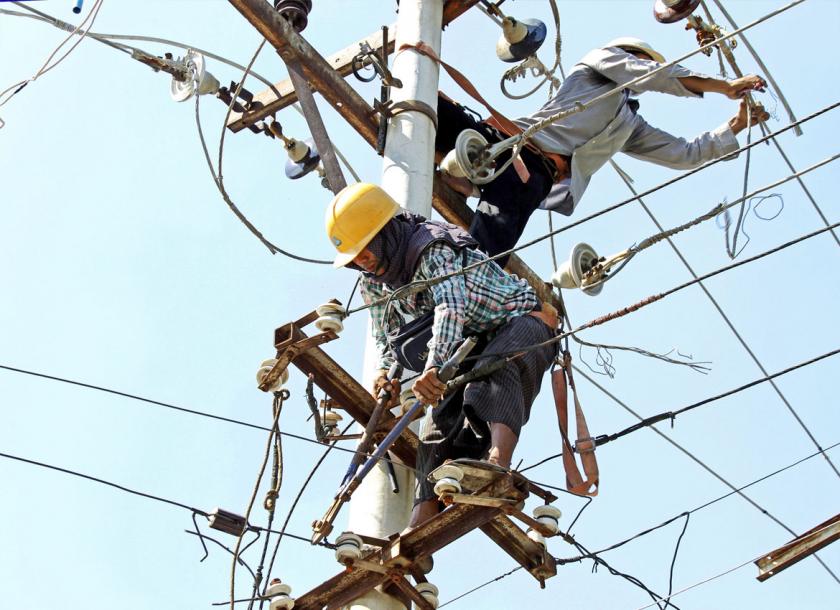Smart Power Myanmar and The Asia Foundation launched two complementary studies of decentralization within Myanmar’s energy sector with the aim to answer Myanmar’s electrification challenge
19 เมษายน 2562
Mini-grids can supply electricity in off-grid areas before the main grid arrives, studies find.
Smart Power Myanmar and The Asia Foundation, both international development nonprofit organisations, launched two complementary studies of decentralisation within Myanmar’s energy sector last month.
Smart Power Myanmar’s latest study, Decentralized Energy Market Assessment for Myanmar, considers the potential role of mini-grids in bringing electricity to millions of people in Myanmar, as well as measures to increase their technical and economic viability. With limited electricity access in Myanmar, mini-grids could play a pivotal role in supplying electricity in off-grid areas while the expansion of the main grid progresses, and they can also be integrated into the main grid upon its arrival.
However, most potential sites for mini-grid development are currently not attractive to private developers, especially given the lack of a legal and regulatory framework. Smart Power Myanmar, in partnership with the German Corporation of International Cooperation (GIZ) and the French Development Agency (AfD), has conducted a study to assess the market size for viable mini-grids in Myanmar.
The study aims to answer the question about how the mini-grid market size is affected by various scenarios, including demand-side support measures; mechanisms that unlock access to financing for developers; implementation of a legal and regulatory framework; and reform of subsidies on the electricity tariff.
The report said State and Region Governments have no authority on budget to sign power purchase agreements (PPAs).
Out of 17 townships in Rakhine State, all can now access electricity except Manaung, but the township is going to be lit up by a mini-grid project in May. Out of more than 3000 villages in the state, up to 800 already have access to electricity.
The Rakhine state government has also spent about K20 billion annually to increase power distribution. But , mini-grids need to be set up in collaboration with the private sector to supply electricity in islands and vast coastal areas outside the nation grid, said U Aung Kyaw Zan, the state minister for electricity, industry and transportation.
Data collection on areas which are out of reach of the national grid was conducted and the state government will allow the private sector if they are interested in operating mini-grids to transmit electricity to these areas, he said.
The combined introduction of these measures could result in 2,300 viable mini-grids supplying 2 million people with electricity in the short term, and as many as 10 million people in the medium to long term.
The Asia Foundation’s new report “Decentralising Power: The role of State and Region Governments in Myanmar’s energy sector” analyses the structures and functions of sub-national governance in Myanmar’s energy sector, and the opportunities and challenges presented by decentralization. In recent years, state and region governments have shown increasing interest in contributing to energy sector development as a means of supporting regional development, but it has not always been clear what role they could and should play in the sector.
The publication also describes a number of areas where state and region governments may have room to be more assertive, including in state and region level policy and planning; public consultation and permitting; management of the local (11 kV) electrical grid; off-grid energy development, especially renewable energy mini-grids; and the promotion of private investment in small and medium-scale electricity production.
“It’s true that the amount of electricity is not sufficient at present. It is more expensive here in the region compared to the rate in other parts of the country. Everyone is welcome and permitted according to law. The price will get cheaper only if we have good hydropower. Electricity shortage in our region will be resolved if projects under 30 MW are approved for operations,” said U Aung Thura Tanintharyi regional minister for electricity and energy.
(The Myanmar Times: https://www.mmtimes.com/news/mini-grids-are-answer-myanmars-electrification-challenge.html )











